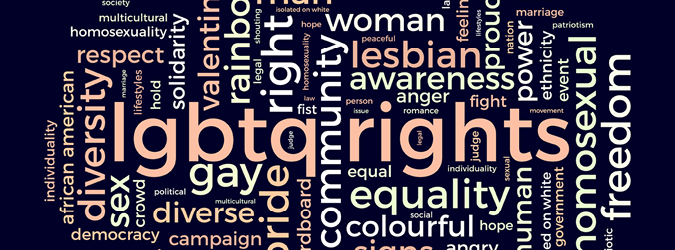Divorce Can Be Difficult For Same-Sex Couples
3.28.2024

Breaking up is hard to do. And for married same-sex couples, past laws can complicate current divorce proceedings.
The New York State Bar Association recently hosted a Continuing Legal Education course on the challenges facing same-sex couples as they try to end relationships and figure out issues related to dividing property and child custody. Margaret Donohoe and Paul Talbert, partners at Donohoe Talbert, led the discussion.
Donohoe described cases in New York State that illustrate these difficulties. In 2005, for example, two women had a traditional Jewish marriage ceremony. They did not receive a marriage license until 2011, when New York State legalized same-sex marriage. In 2019, the women started divorce proceedings, but one woman argued that the marriage started in 2005, while the other argued for 2011.
“These dates make a huge difference in the financial outcome of the case,” said Donohoe. “There is nothing in the [New York] Marriage Equality Act that gives it retroactive application expressly, nor is it prohibited by the language of the statute.”
Eventually, the New York Supreme Court Appellate Division, Second Department, ruled that the marriage started in 2005. A contributing factor to making that decision was that the state in several previous cases had recognized ceremonial religious marriages without a marriage license. “The only reason the court wouldn’t apply it here was that it was a same-sex couple,” said Donohoe. “And that’s exactly what the Marriage Equality Act was supposed to be getting rid of.”
Similarly, same-sex couples with children often ran into complications when determining custody during divorce proceedings. In some cases, biological parents were favored over nonbiological parents, even if the child had an established relationship with the nonbiological parent.
“Many disputes could be avoided by a clear establishment of intent before the conception of a child,” said Donohoe. Otherwise, she said, courts and practitioners are left to figure out family relationships.
In a case from 1991, the Court of Appeals ruled that the nonbiological mother was not a mother, even though she had developed a relationship with the child. Judge Judith Kaye dissented, writing “the impact of today’s decision falls hardest on the children of those relationships, limiting their opportunity to maintain bonds that may be crucial to their development.”
In 2016, the Court of Appeals overruled this decision, citing Kaye’s dissent that maintaining family bonds is important for children. It also argued that a nonbiological parent can seek custody if there is clear and convincing evidence that they were involved with the decision to conceive and raise a child.
To clear up these issues, the New York legislature enacted the Child Parent Security Act in 2021. The act established legal rights for parents who use assistive reproductive technology, like gestational surrogacy. It also codifies that intent, rather than biology, can determine who is the legal parent of a child.
The Child Parent Security Act also established a bill of rights for a surrogate, including health insurance and an attorney paid for by the intended parents. “The portion of the Child Parent Security Act regarding surrogacy is deemed one of the most comprehensive and complete surrogacy laws that has been adopted by any state,” said Talbert.
The program was sponsored by the LGBTQ+ Law Section and the Family Law Section. Watch the full webinar here.






